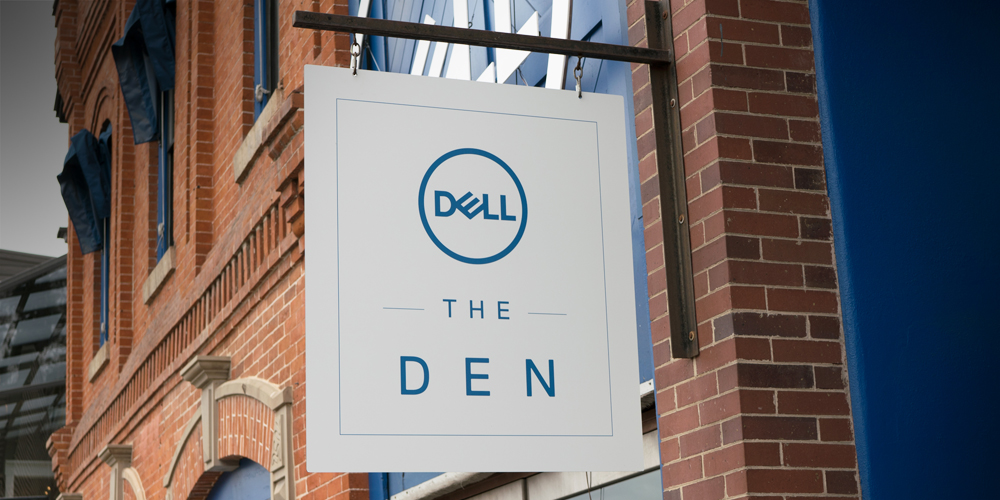Dell brings powerful tech and innovation to Sundance; creators discover new possibilities on the big screen and in virtual reality.

Every January, thousands of filmmakers, critics and fans fill the snowy streets of Park City to attend the Sundance Film Festival – the largest independent film festival in the United States. While the popularity and cultural reach of the festival have grown immensely since its first screening in 1978, the Sundance Institute – the organization behind the event – remains dedicated to helping new and emerging artists.
“It takes a lot to process 13,000 submissions. It takes a lot to handle 100,000 guests,” said Keri Putnam, executive director of the Sundance Institute. “That’s why this festival needs a great technology partner.”
Dell happily joined forces with Sundance this year, powering various aspects of the festival, including the New Frontier, an exhibit entirely dedicated to cutting-edge augmented reality (AR), virtual reality (VR) and mixed reality (MR) works. Behind the scenes at the institute, Precision Workstations and other Dell products were used to create, edit and disseminate video content.
Additionally, we opened the Dell Den – a central event destination and demo space where customers, press, and influencers came to experience new technology and discuss the latest trends in film and innovation.
The Race to 6K
At this year’s festival, Vashi Nedomansky, a filmmaker and editorial consultant on Gone Girl and Deadpool, premiered his new movie 6 Below – the first feature film to be edited natively in 6K.
I’ve cut music videos and short films in native 4K but the challenge of 6K is a brand new beast. It’s nine times larger than HD,” Vashi said. “The Dell Precision Tower 7910 Workstation was the only machine that could give us real-time playback.”
From blockbuster studios to indie filmmakers, Dell technology is designed to meet the demanding needs of an ever-changing industry. So far it’s been incredibly successful.
Five of the last six Academy Award-winning films for visual effects have been powered by Dell (the list: Ex Machina, Inception, Hugo, Gravity, and Interstellar) while Dell Precision workstations kept last year’s blockbuster Spider-Man: Homecoming swinging.
Picturing a More Diverse Industry
On the first Saturday of the festival, the same day as the International Women’s March, a panel of female filmmakers met at the Dell Den to talk about representation, bias and equality in Hollywood.
What Hollywood will not do for us, we’re going to do for ourselves.
Robyn Moreno, Co-President of the Latina Media Ventures told the crowd, “what Hollywood will not do for us, we’re going to do for ourselves.”
More and more filmmakers are taking the process into their own hands, creating the stories they want to see without relying on big studios. Moreno went on to add that a rise in diverse, empathetic filmmaking could cross boundaries and change minds.
“Storytelling is important,” she said. “It stops the bias, so you’re able to connect on a heart level.”
For Ondi Timoner, the director of award-winning documentaries Dig! and We Live in Public, filmmaking is all about taking risks. “I take on projects that are fascinating to me; that answer questions that I might have,” she said. “Most people who create things have to break the rules.”
Ondi would like to see more women working behind the camera as well as in front of it. “If every A-lister said ‘I have to work with a woman director this year,’ it would change the numbers real fast.”
The Future of Filmmaking
At a Sunday afternoon panel titled ‘VR for Good’, Mike Libecki, National Geographic Explorer, shared his enthusiasm with the crowd, saying, “VR is changing the way I tell stories.” Recently, Libecki and team used 360ᵒ VR cameras and Dell Precision Workstations to capture incredible experiences in remote locations.
“We’re paddleboarding next to polar bears in Greenland,” he said. “VR really takes you there. It allows viewers to get as close as possible to actually going on the trip.”
VR has rapidly moved beyond gaming to shift the way the health, education and film industries work. VR and AR revenues were in the billions for 2017, while VR headsets passed a milestone of one million headsets per quarter in the 3rd quarter of last year.
In addition to sales, the technological innovation is moving at light speed.
“One year in AR and VR is like a dog year,” said Gary Radburn, Dell’s director of Commercial VR/AR.
According to Kevin Cornish, founder of Moth + Flame and CAA’s first full-time virtual reality director, the possibilities for VR storytelling are extraordinary.
“VR is a medium where people can talk to you. It’s a medium where people can share their emotions with you, and you can share emotions with them.”
While the film industry itself seems to be on the brink of a major change, Dell continues to create powerful innovation that gives creators more freedom and independence.
“We provide the tools,” said Radburn. “What humankind does with them is boundless and limitless.”